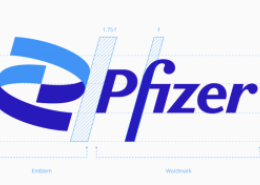COMBACTE Adds a New Project to its Consortium: COMBACTE-CDI
Utrecht, November 15, 2017 – The COMBACTE consortium announces the addition of COMBACTE-CDI as a new project. The project aims to develop a detailed understanding of the epidemiology and clinical impact of Clostridium difficile infection across Europe. The ultimate goal is to contribute to improved treatment options for patients suffering from such infections that are responsible for extensive morbidity, mortality and health care costs.
The 3-year COMBACTE-CDI project merges European expertise on clinical, diagnostic and therapeutic issues related to C. difficile infection (CDI). It brings together experts that previously have partnered in large international CDI projects, the largest existing IMI-funded clinical and laboratory networks in Europe for execution of challenging epidemiological and interventional studies (incl. those caused by antimicrobial-resistant bacteria) and a network mapping all European surveillance activities related to antimicrobial resistance. The total budget of COMBACTE-CDI, in which eight academic and research organizations will collaborate with six EFPIA members, is € 4,582,218 million and the project is scheduled to start in November 2017.
Prof. dr. Marc Bonten, head of the Department of Medical Microbiology at University Medical Center Utrecht (the Netherlands) and academic lead of the COMBACTE program: "The inclusion of a specific project on CDI in COMBACTE fills a notable gap. COMBACTE-CDI will provide important data on the extent of CDI in Europe, and in particular across the whole healthcare economy. It is an ideal platform to extend our knowledge of this key infection, and ultimately to help with the development of better management modalities. The public-private partnership of academy and industry that underpins COMBACTE and COMBACTE-CDI are particularly attractive to deliver these aims".
Charles Knirsch, Vice President, Vaccines Clinical Research and Development at Pfizer, which is leading the EFPIA member consortium on the project: “We look forward to this project helping to further understanding of the epidemiology and impact of CDI infections, which we hope will ultimately prove beneficial for patients in Europe and around the world.”
Clostridium difficile infection
CDI is one of the most prevalent healthcare-associated infections, affecting both hospitalized patients and individuals in the community. It is a major cause of diarrhea and more serious intestinal conditions such as colitis. CDI poses an extensive burden of morbidity, mortality and healthcare resource utilization, and so requires effective prevention and management strategies. There is a lack of robust, comprehensive data on the impact of CDI across countries in Europe. Furthermore, large variations in the frequency of testing and the accuracy of CDI diagnostics mean that the size of the problem is probably underestimated.
*** ENDS ***
Note to the editor
For more information, please contact the press office of UMC Utrecht.
Phone: +31 88 7555 50 00
Email: press@umcutrecht.nl
About COMBACTE-CDI
COMBACTE-CDI aims to develop a detailed understanding of the epidemiology and clinical impact of Clostridium difficile infection (CDI) across Europe. The consortium is co-led by Prof. dr. Marc Bonten Professor of Molecular Epidemiology of Infectious Diseases, and head of the department of Medical Microbiology, at the University Medical Center (UMC) Utrecht, the Netherlands and Prof. dr Mark Wilcox, Professor of Medical Microbiology at the Leeds Teaching Hospitals and University of Leeds, and Lead on C. difficile for Public Health England. The project provides a collaborative approach comprising three scientific work packages (WPs): in WP1 a large epidemiology study will be undertaken across Europe to quantify the burden of CDI (incidence, distribution, recurrence, morbidity, mortality, transmission) across the whole healthcare economy. This will be followed by a case-control study in WP2, which will enable assessment of current practices in Europe (guidelines, testing, surveillance, treatment andcost) and their potential impacts. WP3 will create a rich European research platform to support future proof-of-concept and clinical studies of new prevention and treatment strategies for CDI. The three interrelated research WPs will be supported by a management work package (WP4). COMBACTE-CDI merges excellent European expertise on clinical, diagnostic and therapeutic issues related to CDI, bringing together experts that previously partnered in large CDI projects (EUCLID, LUCID, ORCHID, ECDIS-NET), the largest existing IMI-funded clinical and laboratory networks in Europe (CLIN-Net and LAB-Net) for successfully executing challenging epidemiological and interventional studies (incl. those caused by antimicrobial-resistant bacteria) and a network mapping all European surveillance activities related to antimicrobial resistance. Academic institutes and research organizations participating in COMBACTE-CDI are University Medical Center Utrecht (the Netherlands), Leiden University Medical Center (the Netherlands), University of Leeds Teaching Hospitals (United Kingdom), National Laboratory of Health, Environment and Food, Maribor (Slovenia), University Clinic of Cologne (Germany), Eberhard Karls University Tübingen (Germany), University of Antwerp (Belgium) and the National Institute of Infectious Diseases ‘Lazzaro Spallanzani’, Rome (Italy). EFPIA partners in the consortium are Pfizer Ltd., GlaxoSmithKline, bioMérieux, AstraZeneca/MedImmune, Sanofi Pasteur and Da Volterra.
For more information on the COMBACTE projects, visit www.combacte.com.
About IMI ND4BB Program
Innovative Medicines Initiative (IMI) New Drugs 4 Bad Bugs (ND4BB) program has been launched by the European Union and the European Federation of Pharmaceutical Industries and associations (EFPIA). It represents an unprecedented partnership between industry, academia and biotech organizations to combat antibiotic resistance in Europe by tackling the scientific, regulatory, and business challenges that are hampering the development of new antibiotics through funding by the EU and Innovative Medicines Initiative, and in-kind contributions from the EFPIA. All COMBACTE projects are included within this IMI ND4BB program. For more information on IMI, visit www.imi.europa.eu.
About University Medical Center Utrecht University Medical Center Utrecht hosts the COMBACTE program office and belongs to the largest public healthcare institutions in the Netherlands. It is an internationally leading healthcare provider, medical school and research institute that is exciting for its people, attractive to talent and embodies a culture of teamwork, innovation, sustainability and a competitive spirit. As a patient-centered organization, its 11,000 employees are dedicated to prevent disease, improve healthcare, develop new treatment methods and refine existing ones, with quality and patient safety as cornerstones. For more information, visit www.umcutrecht.nl








